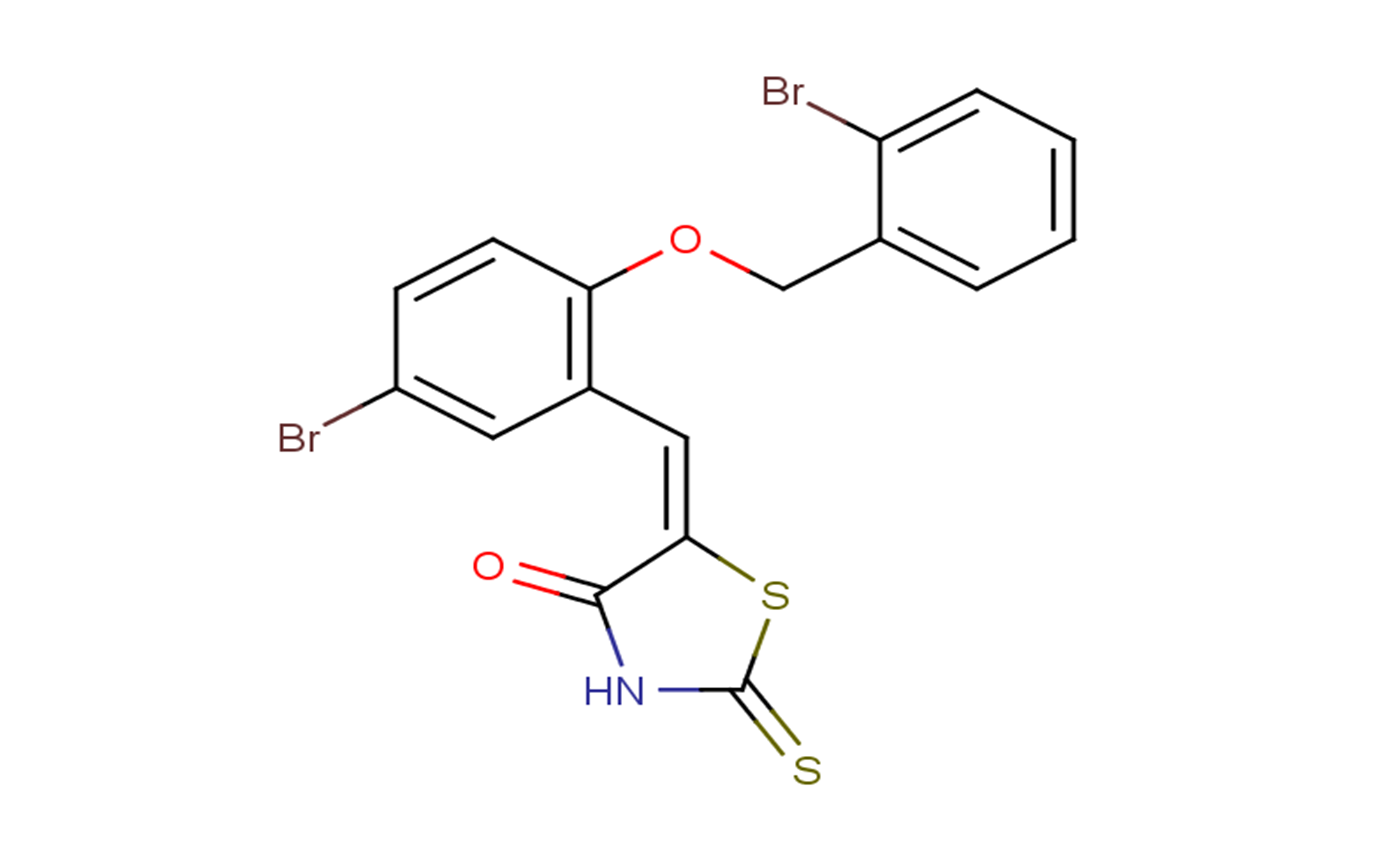
BR-1
CAS No. 893449-38-2
BR-1( PRL-3 Inhibitor )
Catalog No. M24917 CAS No. 893449-38-2
BR-1 is a phosphatase of regenerating liver 3 (PRL-3) inhibitor which blocks the migration and invasion of metastatic cancer cells.
Purity : >98% (HPLC)
 COA
COA
 Datasheet
Datasheet
 HNMR
HNMR
 HPLC
HPLC
 MSDS
MSDS
 Handing Instructions
Handing Instructions
| Size | Price / USD | Stock | Quantity |
| 5MG | 47 | In Stock |


|
| 10MG | 77 | In Stock |


|
| 25MG | 149 | In Stock |


|
| 50MG | 222 | In Stock |


|
| 100MG | 332 | In Stock |


|
| 200MG | 498 | In Stock |


|
| 500MG | 803 | In Stock |


|
| 1G | Get Quote | In Stock |


|
Biological Information
-
Product NameBR-1
-
NoteResearch use only, not for human use.
-
Brief DescriptionBR-1 is a phosphatase of regenerating liver 3 (PRL-3) inhibitor which blocks the migration and invasion of metastatic cancer cells.
-
DescriptionBR-1 is a phosphatase of regenerating liver 3 (PRL-3) inhibitor which blocks the migration and invasion of metastatic cancer cells.
-
In Vitro——
-
In Vivo——
-
SynonymsPRL-3 Inhibitor
-
PathwayOthers
-
TargetOther Targets
-
RecptorPRL-3
-
Research Area——
-
Indication——
Chemical Information
-
CAS Number893449-38-2
-
Formula Weight485.21
-
Molecular FormulaC17H11Br2NO2S2
-
Purity>98% (HPLC)
-
SolubilityDMSO:10 mM
-
SMILESC1=CC=C(C(=C1)COC2=C(C=C(C=C2)Br)/C=C/3\C(=O)NC(=S)S3)Br
-
Chemical Name——
Shipping & Storage Information
-
Storage(-20℃)
-
ShippingWith Ice Pack
-
Stability≥ 2 years
Reference
1.Min G , Lee S K , Kim H N , et al. Rhodanine-based PRL-3 inhibitors blocked the migration and invasion of metastatic cancer cells[J]. Bioorganic & Medicinal Chemistry Letters, 2013, 23(13):3769-3774.
molnova catalog



related products
-
ACTH 1-13
ACTH (1-13) is a 13-aa peptide, with cytoprotective effects in the model of ethanol induced gastric lesions in rats.Adrenocorticotropic hormone (ACTH), also known as corticotropin, is produced and secreted by the anterior pituitary gland. ACTH is an important component of the hypothalamic-pituitary-adrenal axis as a response to biological stress.
-
PTC299
PTC299 (PTC-299) is a novel potent inhibitor of dihydroorotate dehydrogenase (DHODH), inhibits hypoxia-induced VEGFA protein production in HeLa cells with IC50 of 1.64 nM.
-
Di-O-methylbergenin
Di-O-methylbergenin is a natural product for research related to life sciences.



 Cart
Cart
 sales@molnova.com
sales@molnova.com


